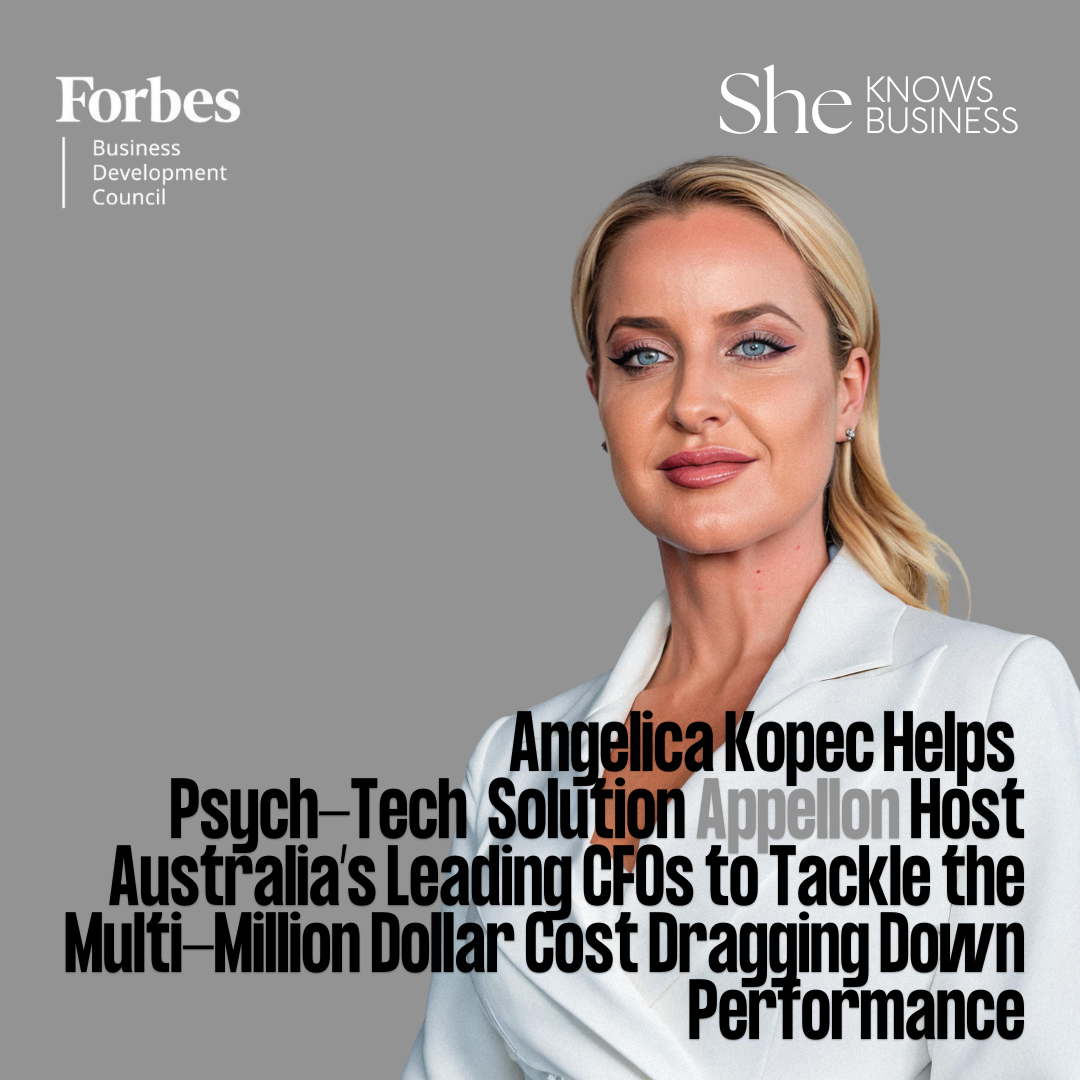
Angelica Kopec helps Psych-Tech solution platform Appellon host Australia’s Leading CFOs to Tackle the Multi-Million Dollar Cost Dragging Down Performance
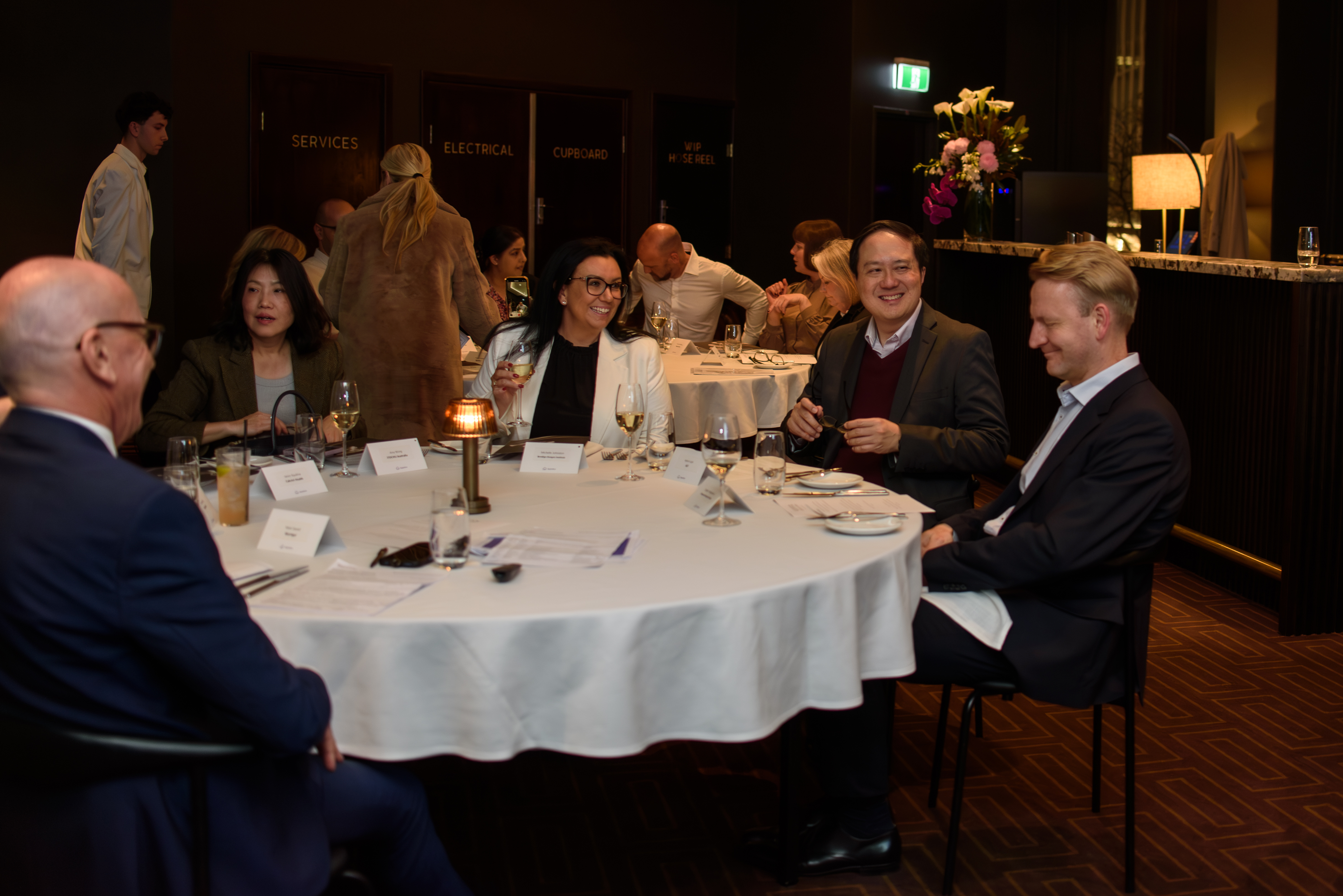
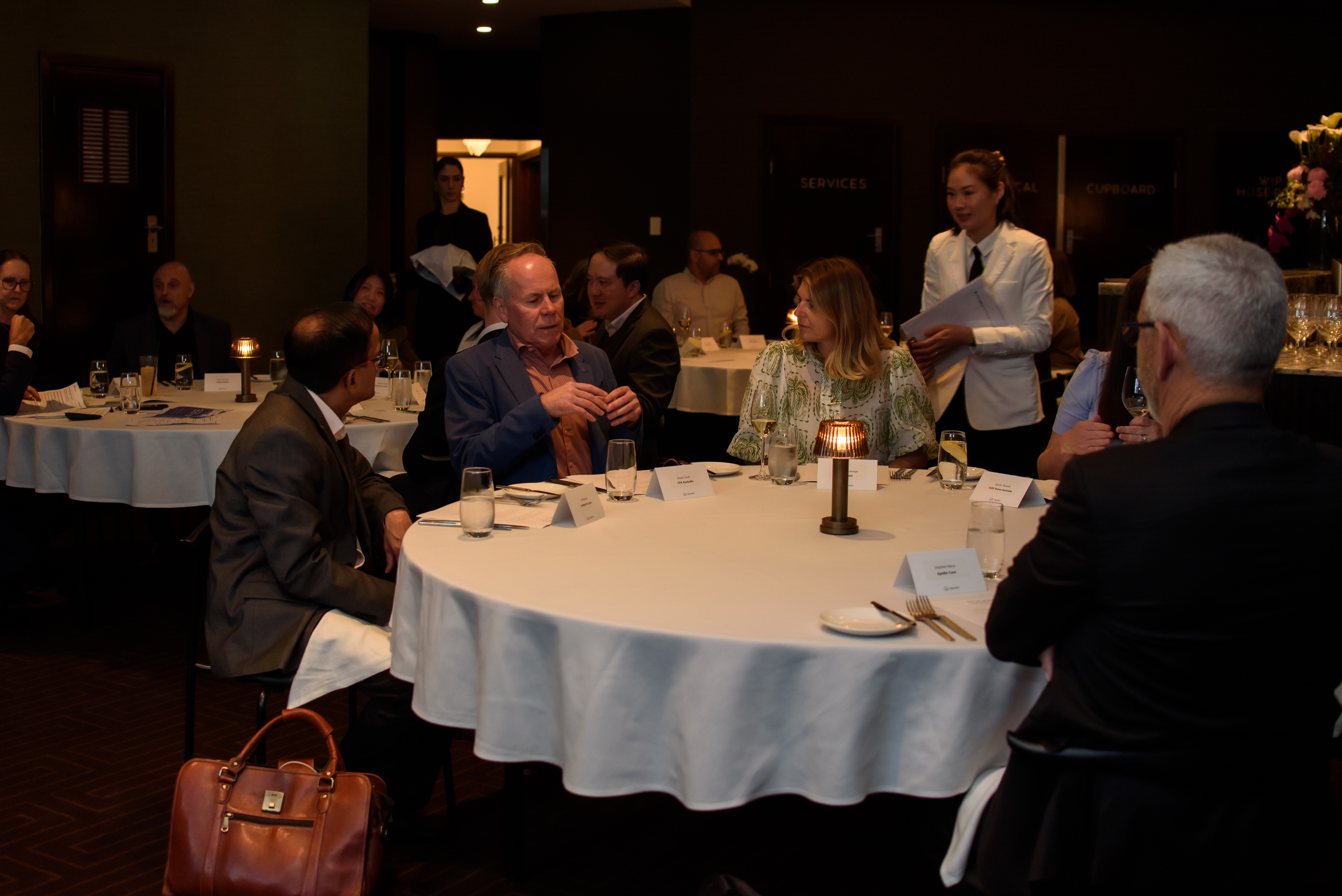
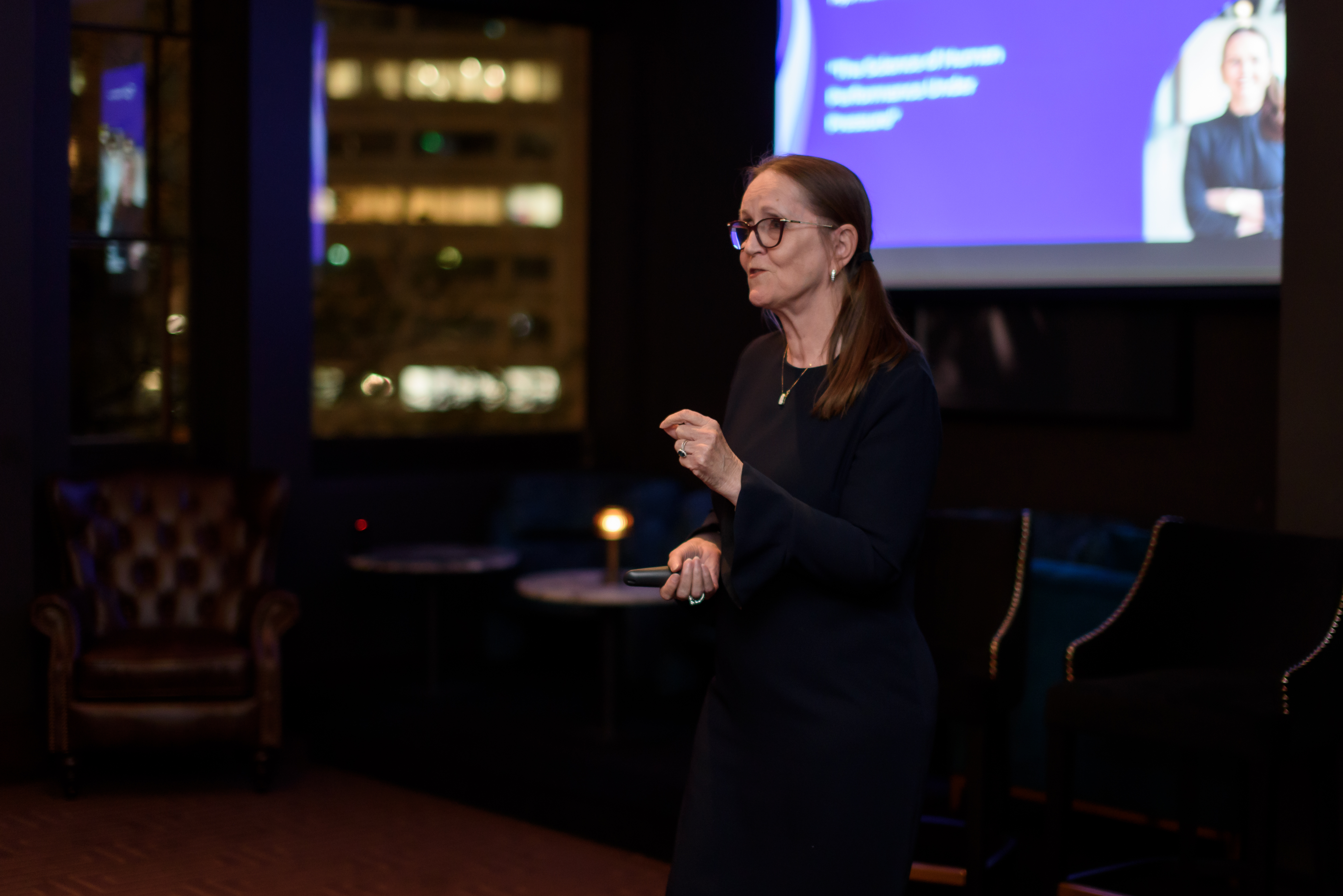
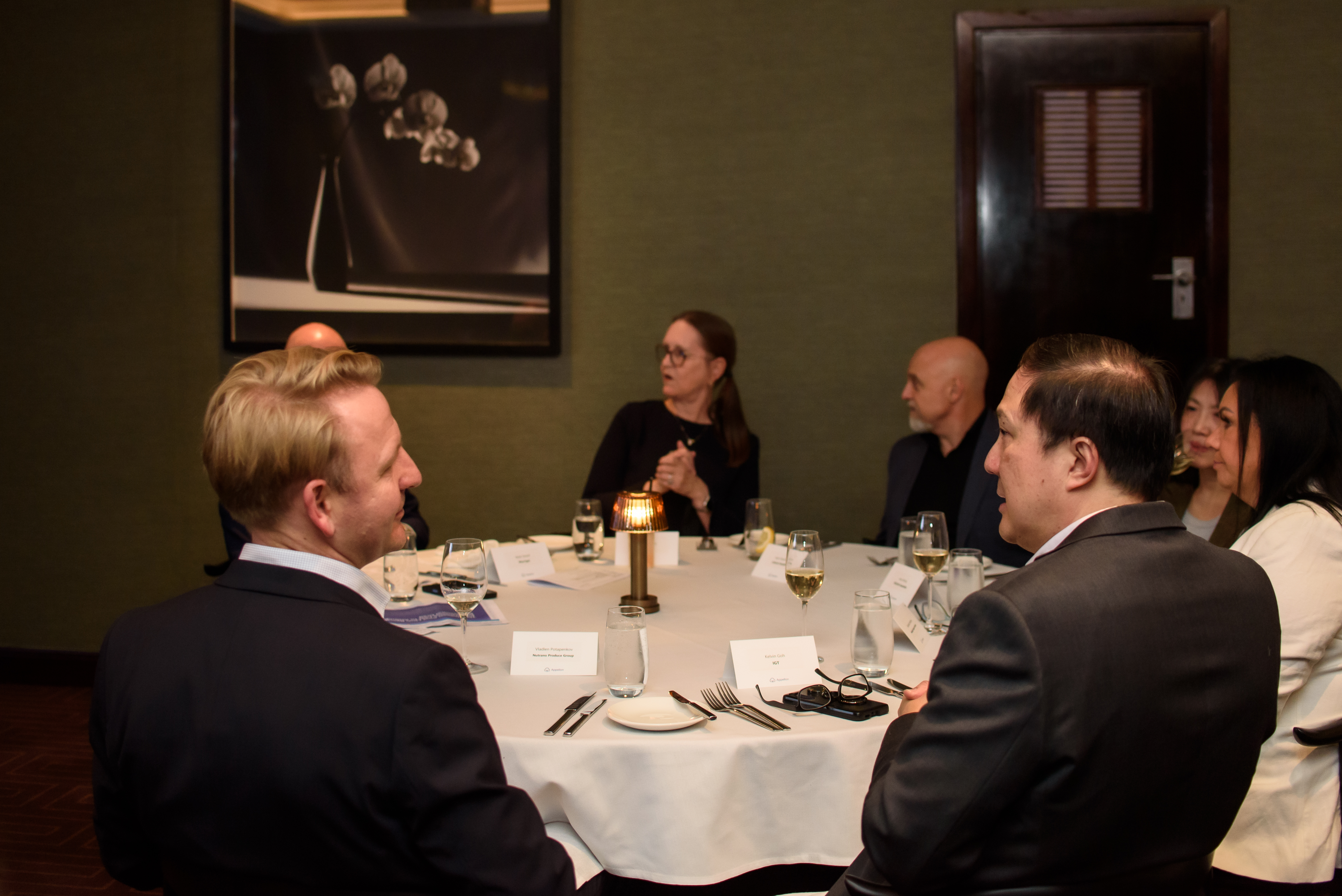

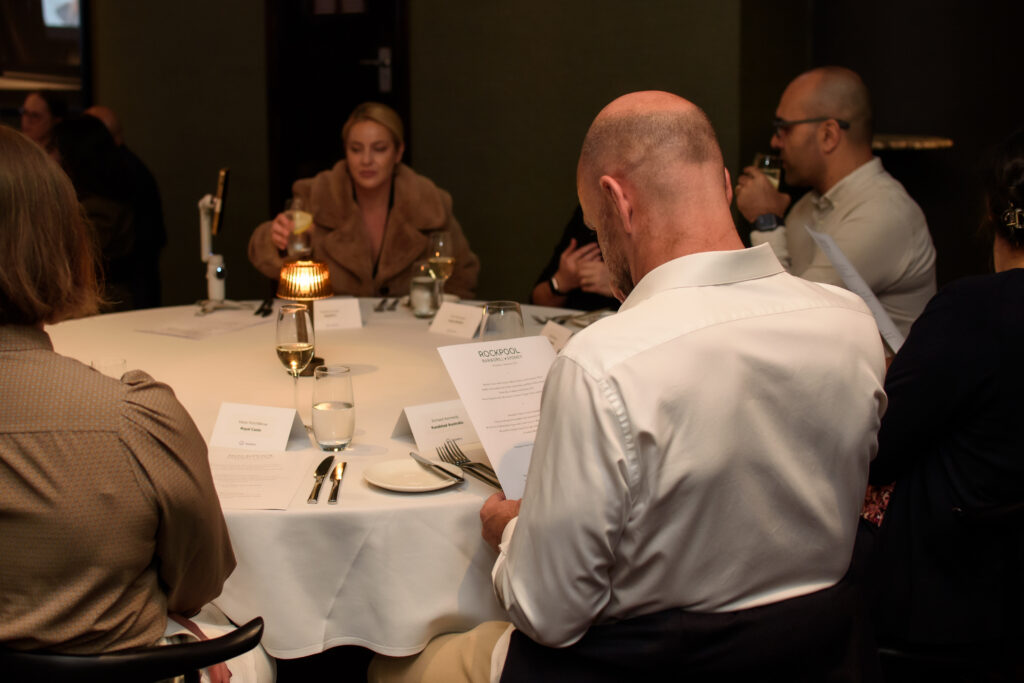
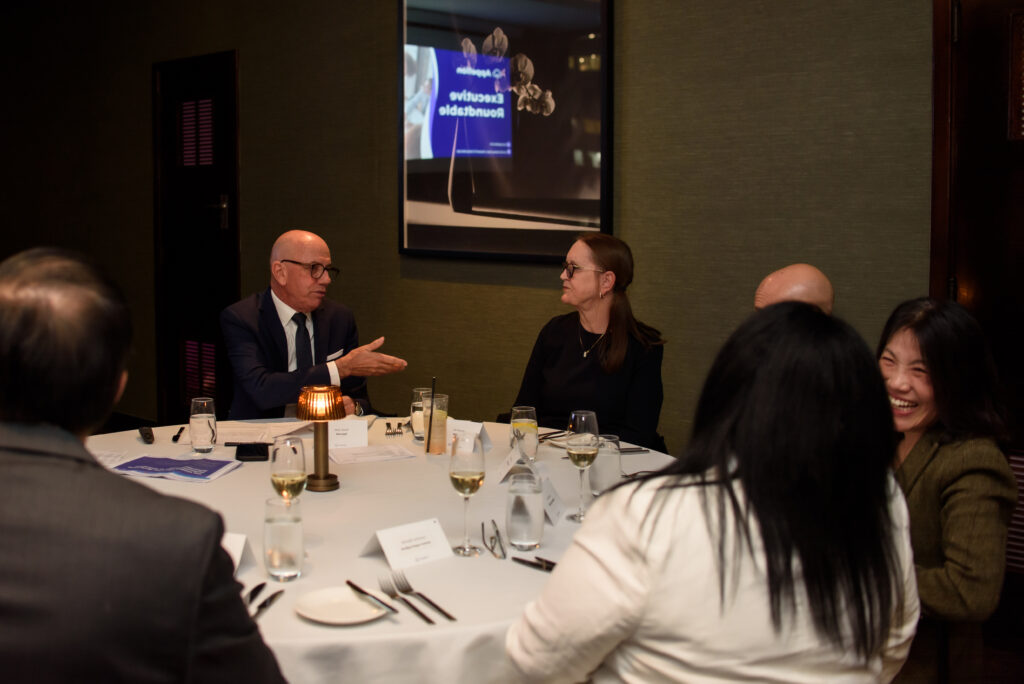
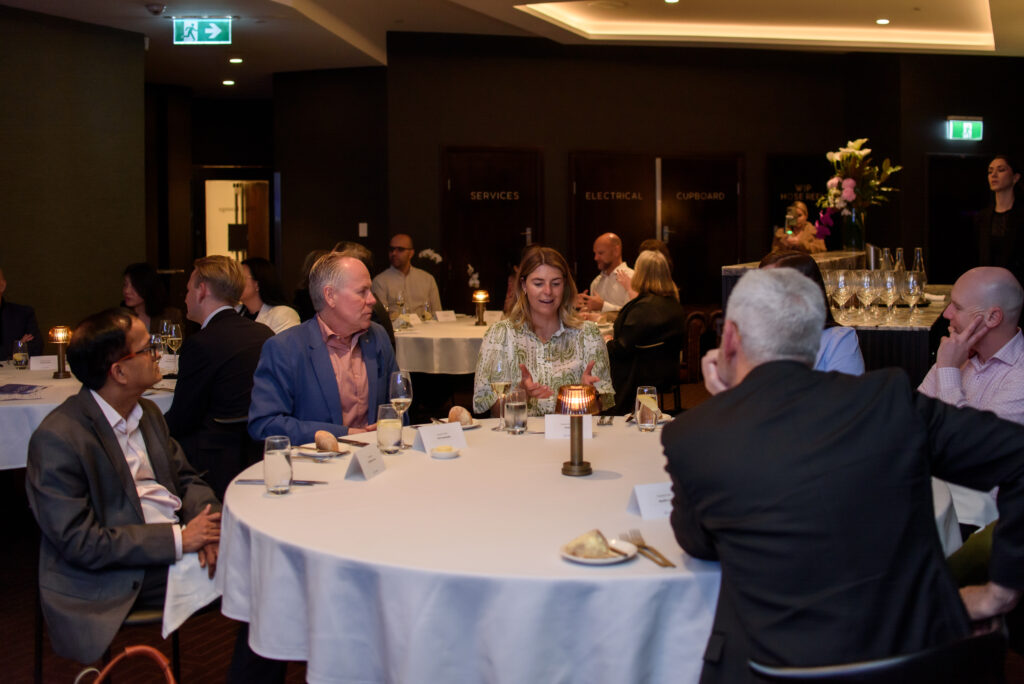
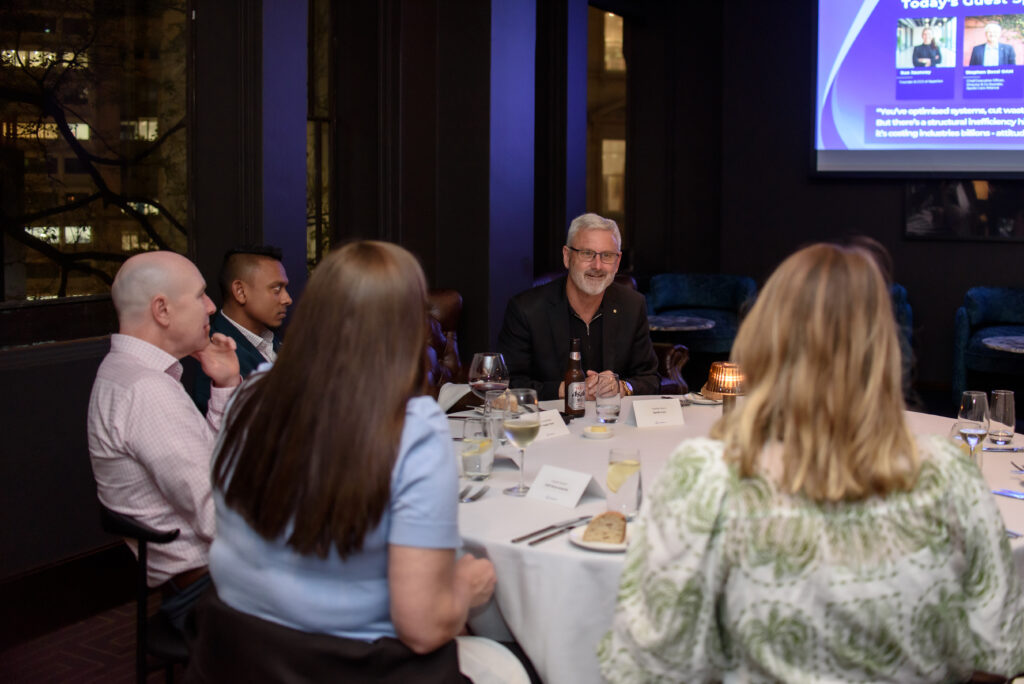
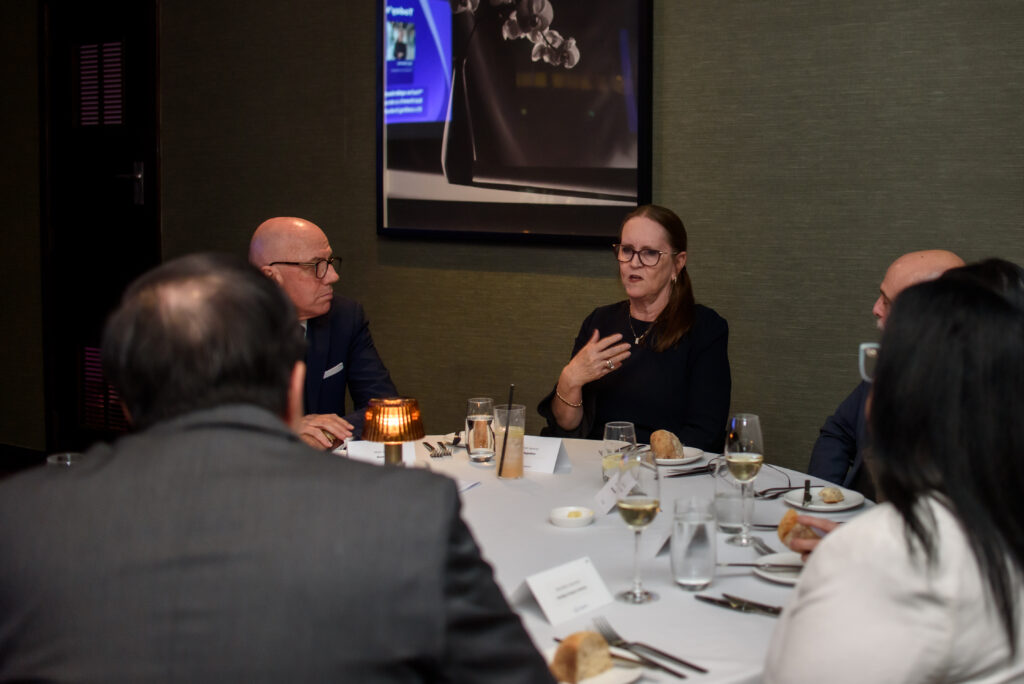
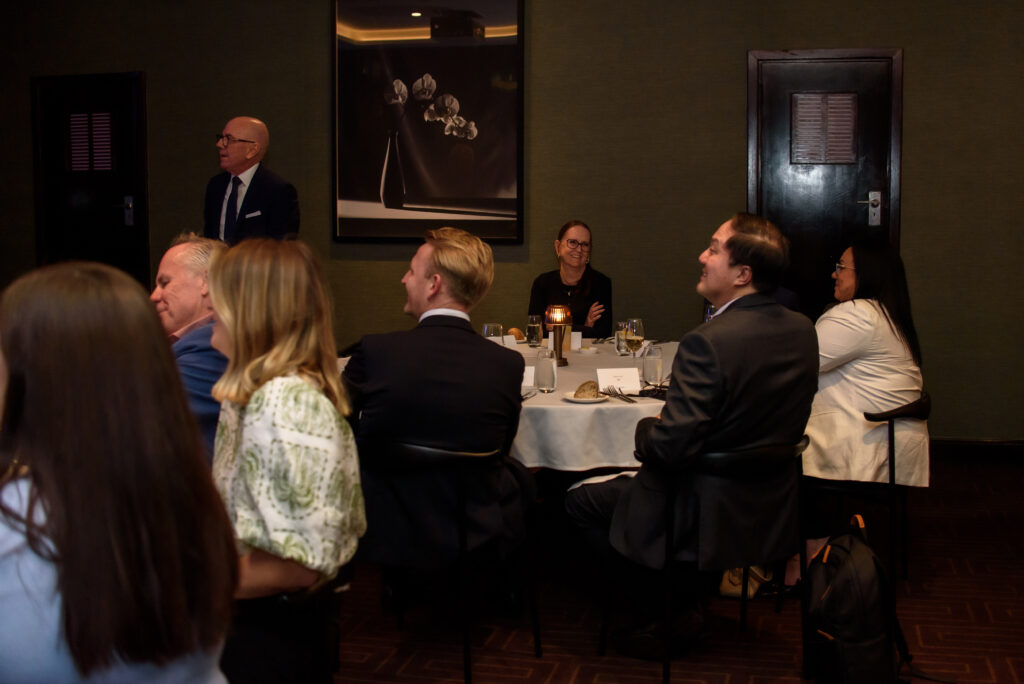
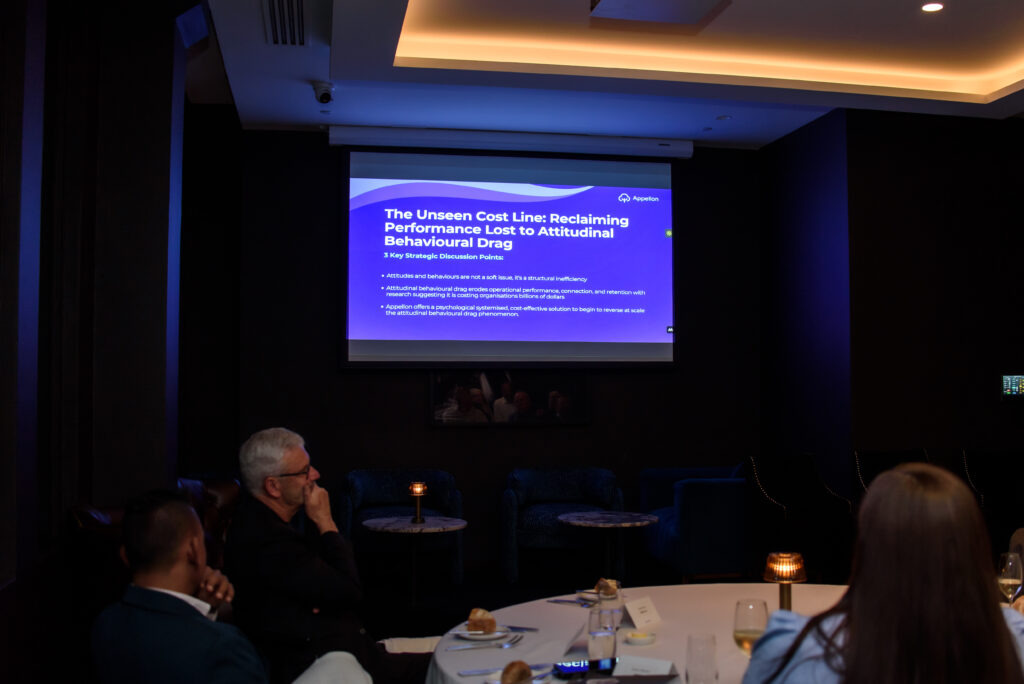
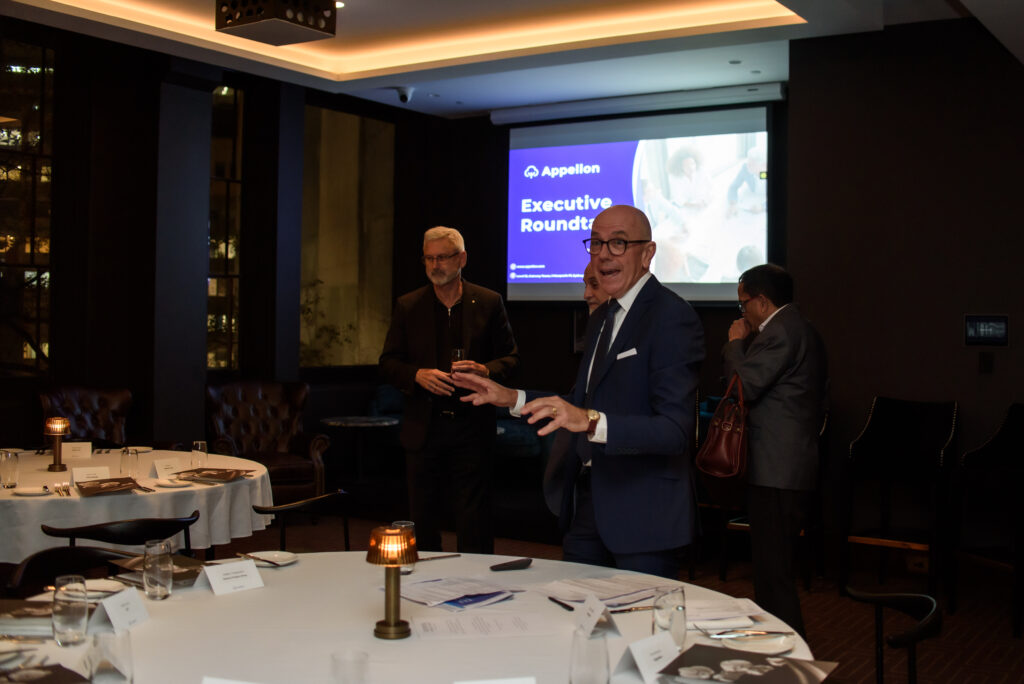
17 CFOs and senior executives from global powerhouse organisations — including IKEA, DHL, Randstad and Honey Birdette gathered behind closed doors at Rockpool for an invite-only roundtable hosted by Appellon, with strategic support from Angelica Kopec, CEO of She Knows Business.
The topic?
“The Unseen Cost Line: Reclaiming Performance Lost to Attitudinal Behavioural Drag.”
Proof From the Frontline
The highlight of the evening came from two respected guest speakers, who brought real-world evidence of the costs — and solutions — tied to workforce culture.
Stephen Besci, OAM — Former Rear Captain, Royal Australian Navy; CEO, Apollo Care Alliance
Stephen shared how the Royal Australian Navy uncovered a staggering $308 million annual cost linked directly to behavioural inefficiencies. Traditional training and strategy had failed to solve the problem but treating culture as a system, with Appellon’s methodology, created measurable, sustainable change.
Now, as CEO of Apollo Care Alliance, Stephen is applying the same principles to the aged care sector, where the behavioural challenges are similar but the costs are even more personal.
Professor Michelle McKay — Former CEO, UK NHS; CEO, Adelaide PHN
Michelle offered a candid look at the human cost of workforce disconnection in high-pressure health systems. Leading one of the world’s most complex health networks, she saw first-hand how disengagement, retention issues, and leadership misalignment cripple performance.
Her experience implementing Appellon within the NHS showed measurable results: improved retention, leadership alignment, and staff connection to purpose.
The Science Behind the System
The roundtable was anchored by Sue Jauncey, CEO and Founder of Appellon, who reframed “culture” for CFOs through the lens of behavioural science.
Sue explained how attitudinal behavioural drag is not a soft issue — it’s a structural inefficiency costing organisations billions. She outlined the physiological and psychological difference between cortisol-heavy workforces and oxytocin-driven teams, and how Appellon’s 10-minute weekly micro-learnings can rewire neural pathways and unlock trapped performance.
Her message was blunt:
“If attitudes and behaviours drive cost, performance, safety, and retention — why are we not measuring them?”
The Appellon Methodology
What makes Appellon unique is that it is a psych-tech operating system built to rewire workplace attitudes and behaviours at scale.
The methodology is grounded in behavioural science and focuses on shifting the brain’s balance from cortisol (stress and disengagement) to oxytocin (trust, achievement, and connection). Instead of workshops or slogans that fade quickly, Appellon delivers 10-minute micro-learnings each week that reinforce performance-aligned behaviours and reshape neural pathways over time.
This system does three things exceptionally well:
- Reinforces high-performance behaviours weekly so culture doesn’t drift back to old habits.
- Flags psychological and leadership risk early, giving executives visibility into issues before they become costly.
- Improves connection, wellbeing, and performance outcomes measurably, tying culture directly to operational results.
For CFOs in the room, the numbers spoke louder than anything else:
- $308M in cost recovery for the Royal Australian Navy
- 90%+ weekly workforce engagement
- 75%+ uplift in wellbeing scores within 5 months
The message was unmistakable: culture is not intangible: it’s measurable, manageable, and monetisable when treated as a system.
Final Word
As I reflected on the roundtable, I was reminded why I do this work. My role, alongside the Appellon team, was to curate the right room, seed the right questions, and ensure the conversation went far deeper than the clichés of perks and surveys.
Because the future of workforce wellbeing and performance is about science and systems through ongoing learning. And it’s about giving leaders the tools to reclaim billions in lost potential currently hidden in attitudes and behaviours.